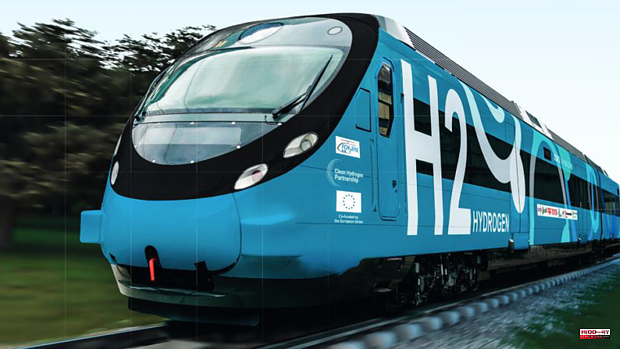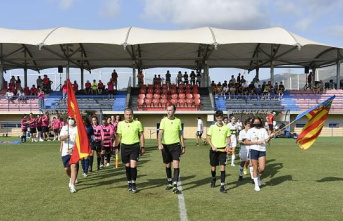The National Hydrogen Center of Puertollano (Ciudad Real) leads the development tests of the heart of the first FCH2RAIL bimodal hydrogen train prototype, which will be able to combine the energy of the electrified railway networks, in the sections in which it is possible, with a package hybrid energy composed of fuel cells and hydrogen batteries. The project thus proposes an alternative transport to the diesel railcars used in the railway sections that are not electrified.
Scientists from the National Hydrogen Center (CNH2) are carrying out the integration and homologation tests of the train's 'PowerPack', its hybrid battery system, mainly in charge of the characterization tests of the fuel cells and assembling the test benches for this, as reported by the CNH2 to Europa Press.
Precisely on June 1 and 2, the partners of the FCH2RAIL project met in Puertollano to continue advancing in the planned tasks and learn first-hand about the integration and homologation tests of the 'PowerPack', which consists of a hybrid system of batteries scalable, modular and versatile fuel applicable to different railway applications, such as regional trains, freight locomotives and shunting locomotives.
According to the CNH, these trials are the fundamental preliminary step for the subsequent demonstration to be carried out on the "retro-adapted" bimodal regional train itself, which is being worked on, which will take electricity from the catenary in the electrified sections and use the hybrid system as a source of energy in non-electrified sections, "with the support of an innovative energy management system throughout the train to minimize consumption and power".
Other objectives of the project led by the CNH2 are the development of the prototype of the refueling point that will serve the prototype of the train and the work package for the development of European regulations for the introduction of hydrogen in the railway sector.
The FCH2RAIL, which has a total budget of 14 million euros, is a project financed by the Clean Hydrogen Partnership consortium that began on January 1, 2021 and whose total duration is 48 months. Its partners include CNH2 itself, the Spanish manufacturer CAF, Renfe, Toyota Motor Europe, ADIF, Infraestructuras de Portugal, Stemmann Technik and DLR.












